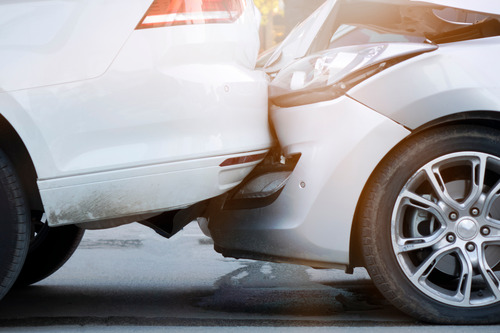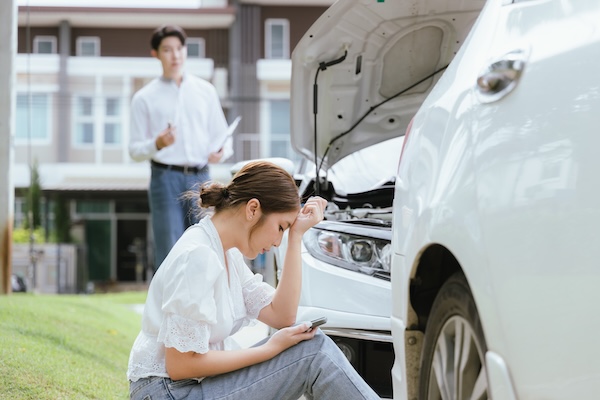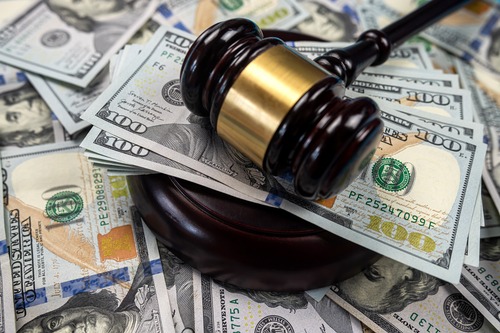Uber and Lyft have changed the way we travel with convenience and flexibility that traditional taxis can’t match. However, when rideshare accidents happen, figuring out who’s liable can be complicated, especially in North Carolina, where traffic laws and insurance policies intersect. Determining liability can be particularly challenging in these scenarios. A personal injury attorney can help determine liability and navigate the legal complexities involved. Questions arise about whether the rideshare driver, their personal insurance, or the rideshare company’s insurance policy covers damages, medical bills, or lost wages.
In this post, we’ll explain how driver status affects liability, navigate the insurance maze, and explain why you need to partner with an experienced rideshare accident attorney in Charlotte to get fair compensation.
Liability Based on Driver Status
Liability in rideshare accidents is all about the driver’s status at the time of the accident. Each scenario—whether the driver is off-duty, logged in without an active ride, or actively transporting a passenger—affects who’s liable. Determining liability can be complex due to these different scenarios of driver status. Here’s how driver status affects liability in North Carolina.
Off-Duty
When a rideshare driver is off duty, their driver’s personal auto insurance covers any accidents. But this coverage is limited. If the driver is in an accident while not logged into the rideshare app, their personal insurance will likely be the primary source for any claims. Rideshare companies like Uber and Lyft don’t cover this situation, so it’s important to understand the limitations of personal auto insurance policies.
Logged In, No Active Ride
If the driver is logged into the rideshare app but doesn’t have an active ride, the situation changes slightly. Managing ride requests can lead to distractions and increase the risk of accidents. In this case, rideshare companies may offer some coverage.
Uber and Lyft usually offer some liability coverage, but it may not be enough to cover all damages. This partial coverage can create confusion about who’s liable, especially if the driver was engaged in rideshare activities at the time of the accident. You need to understand these subtleties if you’re involved in this situation.
Active Ride
The most coverage occurs when the driver is actively transporting a passenger. In this case, the rideshare company’s insurance policy usually provides the most liability coverage. This includes bodily injury and property damage to third parties. If an accident happens while the driver is en route to pick up a passenger or during the ride, the rideshare company’s insurance will usually cover the damages. This scenario makes liability claims easier because the rideshare company is responsible for the actions of their drivers while they’re engaged in rideshare services.
Insurance Coverage
Understanding insurance coverage in rideshare accidents is key to liability and getting compensation. It is crucial to understand the rideshare company’s insurance policies, as they interact with personal auto insurance and can significantly impact your case. Each has its own requirements and limitations that can impact your case big time.
Personal Auto Insurance
In North Carolina, personal auto insurance policies have minimum coverage requirements. But many standard policies exclude coverage for accidents that happen while a driver is engaged in rideshare activities. So if a driver is in an accident while driving for Uber or Lyft, their driver’s personal insurance may not cover the damages due to its limitations during rideshare activities. Drivers need to review their policies and consider additional coverage options that cover rideshare activities.
Rideshare Company Insurance
Rideshare companies like Uber and Lyft have their own rideshare company’s insurance policy to cover drivers and passengers. This coverage is divided into different periods based on the driver’s status:
- Off-duty: When the driver is not logged into the app, they only have their personal auto insurance.
- Logged in but no active ride: If the driver is available but hasn’t accepted a ride request, the rideshare company offers limited coverage, usually up to $100,000 bodily injury per person and $50,000 property damage.
- Active ride: When a driver accepts a ride request and is en route to pick up a passenger, the rideshare company provides full coverage, which usually includes $1 million liability coverage.
What to Do After a Rideshare Accident
A rideshare accident can be stressful. Knowing what to do immediately after can impact your health, safety, and potential compensation. Police reports are crucial for documenting the incident, as they provide an official account that can be used alongside other evidence like witness statements and traffic footage. Here’s what to do:
Get Safe and Get Medical Help
The first priority after an accident is to get everyone safe. If you or anyone involved is injured, call for medical help right away. Even if injuries seem minor, get checked by a medical professional. Some injuries may not be immediately apparent. Medical attention creates a record of your injuries, which is key to any future claims.
Call the Police and Get Information
After you get safe, call the police to report the accident. Police reports are key to documenting the incident and will be an important piece of evidence in your case. While waiting for the police, get as much info as you can:
- Exchange Info: Get the names, contact info, and insurance info from all other drivers.
- Get Witness Statements: If there are witnesses, get their contact info and a brief statement of what they saw.
- Take Photos: Document the accident scene, vehicle damage, and any visible injuries. Photos will be useful later.
Notify Insurance Companies
Once you’ve taken the necessary safety precautions and got the info, notify your insurance company about the accident. This includes your personal auto insurance and the rideshare company’s insurance. Give them the details of the incident but don’t admit fault. Each insurance company will have their own process for claims, so follow their instructions.
Filing a Claim and Getting Compensation
After a rideshare accident, seeking compensation is crucial, and understanding the claims process is essential. This involves gathering the right documentation, knowing what kind of compensation is available, and understanding the benefits of working with a rideshare accident attorney.
Gather Documentation
To support your claim, you’ll need to gather:
- Police Report: Get a copy of the police report that describes the accident. This will be key evidence.
- Medical Records: Keep all medical records related to your injuries. These will help prove the extent of your injuries and treatment.
- Witness Statements: If there were witnesses to the accident, get their contact info and statements. Their statements will add to your case.
- Insurance Info: Get info on all insurance policies involved, including your personal auto insurance and the rideshare company’s insurance.
Types of Compensation
When filing a claim after a rideshare accident, you may be entitled to:
- Medical Expenses: This includes hospital visits, surgeries, rehab, and ongoing medical care required due to your injuries.
- Lost Wages: If your injuries prevent you from working, you can claim lost income during your recovery period.
- Pain and Suffering: Compensation can also cover physical pain and emotional distress from the accident.
- Property Damage: If your car or personal belongings were damaged, you can claim repair or replacement costs.
Role of a Rideshare Accident Attorney
The claims process can be complicated, especially when dealing with multiple parties and insurance companies. Having a knowledgeable personal injury attorney will give you the legal expertise needed in rideshare accident cases. A knowledgeable personal injury attorney will provide:
- Legal Advice: An attorney will explain your rights and options.
- Negotiation: Attorneys are skilled negotiators and will advocate for you to get you fair compensation.
- Investigation: Your attorney will investigate the accident, gather evidence, and build your case.
- Litigation: If your claim can’t be settled through negotiation, an attorney will represent you in court and guide you through the process.
Consult With an Experienced Rideshare Accident Lawyer ASAP!
If you or a loved one has been involved in a rideshare accident, don’t navigate the complexities of liability and insurance alone. Our dedicated team at NC Car Accident Lawyers is here to provide expert guidance and fight for the compensation you deserve.
Contact us at 864-561-6247 today for a free case review!





